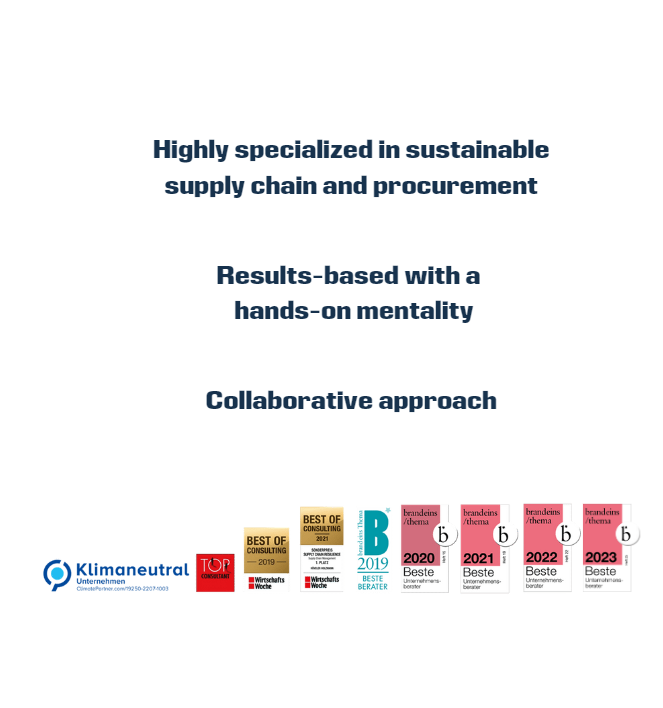
Reducing carbon emissions
Decarbonizing Supply Chains
Three steps to reducing carbon emissions in supply chain management and procurement
What are the reporting duties that I’m going to have to fulfill in carbon accounting? Where are the greatest greenhouse gas emissions in my business and along my supply chain? What will the cost impact of carbon price changes be on my business? How and at which suppliers, locations and so on can I significantly reduce my CO2e footprint? How can SCM and procurement add the most value in decarbonizing the supply chain?
We implement your decarbonization project in three steps:
HÖVELER HOLZMANN - a valantic company
Bahnstraße 16
40212 Düsseldorf
Tel.: +49 (0) 211 - 56 38 75 - 0
Fax: +49 (0) 211 - 56 38 75 - 69
Mail: info@hoeveler-holzmann.com


